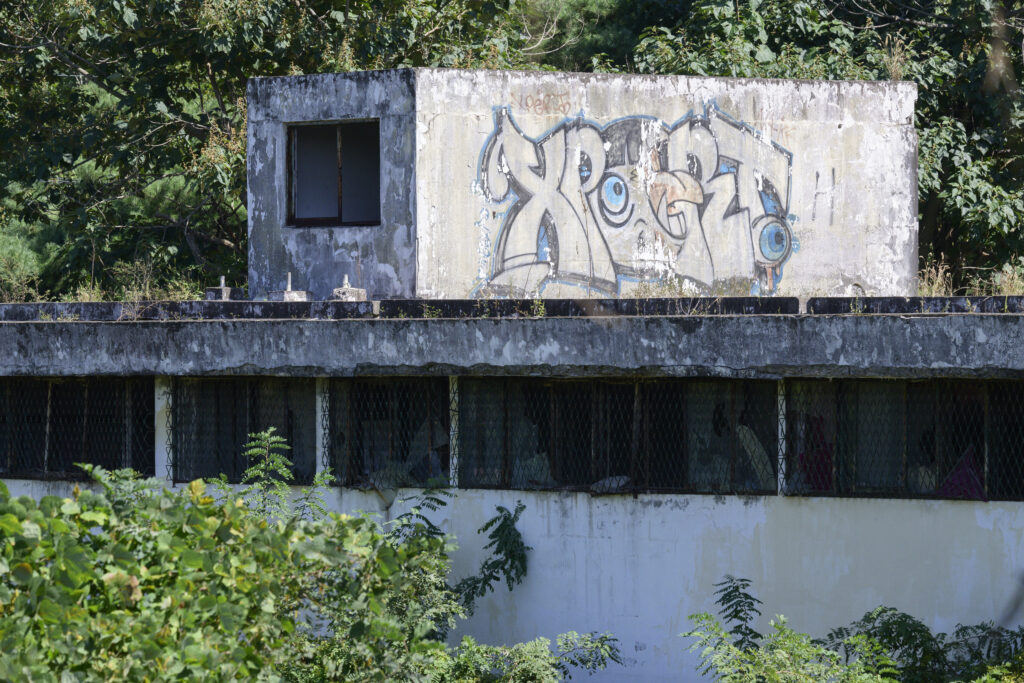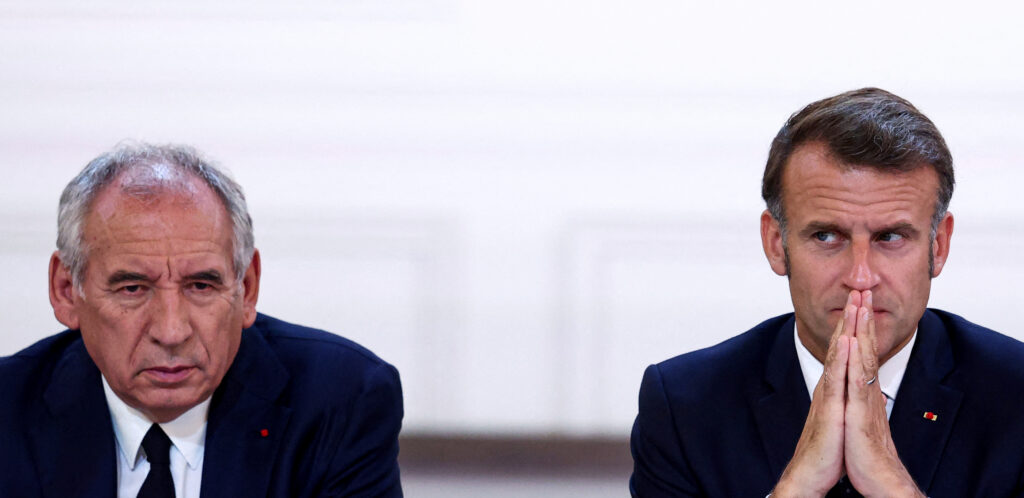France: la production industrielle se replie de 1,1% en juillet, selon l’Insee
La production industrielle française s’est repliée de 1,1% en juillet par rapport au mois précédent, suivant la même tendance que l’industrie manufacturière (-1,7%), affectée par une baisse de la construction aéronautique et spatiale, a indiqué mardi l’Insee.Ce repli fait suite au fort rebond de la production industrielle (+3,7%, légèrement révisé en baisse) et manufacturière (+3,5%) qui avait été observé en juin, a précisé l’Institut national de la statistique. Sur un mois, la production manufacturière a souffert de la baisse de la fabrication de matériels de transports (-10,7% après +16,3% en juin), particulièrement la construction aéronautique et spatiale “par contrecoup d’un pic de production en juin”, a expliqué l’Insee dans un communiqué. La production est en baisse également dans la fabrication de biens d’équipement électriques, électroniques et informatiques (-2,2%) et l’agro-alimentaire (-1,3%). Elle a en revanche continué d’augmenter dans la cokéfaction et le raffinage (+2,5% après +21,0%), les industries extractives, énergie, eau (+1,6%) et les autres produits industriels (textile, métallurgie, chimie, pharmacie, etc.) (+1,0%).Dans la construction, la production a rebondi de 0,6% en juillet par rapport à juin (-0,2%), à la hausse dans les travaux de construction spécialisés et celle de bâtiments, mais en baisse dans le génie civil. Sur un an, la production industrielle (+0,8%) et manufacturière (+1,3%) s’est inscrite en hausse sur les trois mois allant de mai à juillet, comparés à la même période en 2024, tirée par la fabrication de matériels de transport (+10,5%). Toujours sur un an, la construction est en baisse de 3,6% entre mai et juillet par rapport à la même période l’année précédente.
Korean women target US military in landmark forced prostitution lawsuit
More than 100 South Korean women forced to work as prostitutes for US soldiers stationed in the country have filed a landmark lawsuit accusing Washington of abuse, their lawyers said Tuesday.Historians and activists say tens of thousands of South Korean women worked for state-sanctioned brothels from the 1950s to 1980s, serving US troops stationed in country to protect the South from North Korea.In 2022, South Korea’s top court ruled that the government had illegally “established, managed and operated” such brothels for the US military, ordering it to pay around 120 plaintiffs compensation.Last week, 117 victims filed a fresh lawsuit, this time officially accusing — and seeking an apology from — the US military, for the first time.The lawsuit seeks 10 million won ($7,200) in compensation per victim.Unlike the better-known “comfort women” used by Japanese soldiers until the end of World War II, those who worked for the US troops have received relatively limited attention, largely due to Washington being Seoul’s key and longtime security ally.The economy surrounding military brothels in US base towns, including restaurants, barbershops and bars catering to American GIs, made up about 25 percent of South Korea’s GDP during the 1960s and 70s, according to historians.”I still cannot forget being beaten by US soldiers — slapped for lowering my head while pouring drinks, for not smiling, or for no reason at all,” one of the plaintiffs, in her 60s and who did not wish to give her name, said in a statement sent to AFP.She said she was only 17 when she was tricked into the job — she thought she was going to be a bartender, but was forced into sex work and told she could not leave due to her “debt”.’I couldn’t walk'”Every night we were dragged to US soldiers and sexually abused. Every week we were forced to undergo venereal disease tests. If there was the slightest abnormality, we were locked in a small room and injected with a thick needle of strong penicillin,” she said.”The shots were so harsh that my legs gave out and I couldn’t even walk.”In a joint statement, women’s rights activists supporting the victims said the US military “ignored the South Korean Constitution” and stripped the women of their personal freedom and “destroyed their lives”.The suit names the South Korean government as the defendant, since under existing laws Seoul must compensate victims of illegal acts committed by US soldiers on duty and later seek reimbursement from Washington, lawyers said.”This lawsuit seeks to hold both the South Korean government and the US military authorities jointly liable for the unlawful acts,” lawyer Ha Ju-hee told AFP.The US still stations around 28,500 troops in South Korea to help protect it against nuclear-armed North Korea.The United States Forces Korea (USFK) told AFP it was “aware of the reports regarding the issue”, adding “we will not comment while legal proceedings are ongoing”.”We affirm that we do not condone any behavior that violates Republic of Korea laws, rules, or directives, and we remain committed to maintaining the highest standards of good order and discipline.” the USFK said.
Bayrou va démissionner, Macron veut nommer un successeur “dans les tout prochains jours”
Emmanuel Macron se retrouve mardi en première ligne pour tenter de résoudre, “dans les tout prochains jours”, le casse-tête qu’il est incapable de dénouer depuis plus d’un an: trouver un Premier ministre susceptible de survivre dans un paysage parlementaire sans majorité.Au lendemain de sa chute, François Bayrou, qui a massivement perdu lundi son pari d’obtenir la confiance de l’Assemblée nationale, doit remettre sa démission, conformément à l’article 50 de la Constitution, mardi à la mi-journée au président de la République qui en a déjà “pris acte”.Il va ensuite expédier les affaires courantes en attendant la nomination d’un successeur, le cinquième Premier ministre depuis le début du quinquennat en 2022, du jamais-vu dans une Ve République longtemps réputée pour sa stabilité politique mais entrée dans une crise sans précédent depuis la dissolution de juin 2024.Le chef de l’Etat “nommera un nouveau Premier ministre dans les tout prochains jours”, a annoncé l’Elysée dans un communiqué alors que revient fréquemment le nom du ministre des Armées Sébastien Lecornu.Dès ce mardi ? “Ça fait partie des possibles”, ainsi qu’une expression présidentielle le même jour, glisse-t-on dans son entourage, sans certitude.Cela lui permettrait de ne pas être seul à la tête de l’Etat mercredi face au mouvement de protestation “Bloquons tout”, né sur les réseaux sociaux et soutenu par la gauche, qui précédera la mobilisation syndicale du 18 septembre, avec entre les deux la décision vendredi de l’agence Fitch qui pourrait dégrader la note de la dette française et engendrer des turbulences sur les marchés financiers.A défaut, rapporte un interlocuteur régulier d’Emmanuel Macron, un Premier ministre pourrait être nommé d’ici la fin de la semaine, de manière à disposer d’un gouvernement au complet lorsque le chef de l’Etat s’envolera pour New York où il doit reconnaître les 22-23 septembre l’Etat de Palestine à l’ONU.Selon le raisonnement des stratèges élyséens, cette fois, le chef de l’Etat ne devrait pas engager des “consultations formelles”, alors qu’il avait reçu les formations politiques à tour de rôle avant de désigner Michel Barnier il y a un an, et organisé une table ronde de plusieurs chefs de parti avant de choisir François Bayrou en décembre.- accord de non censure -A l’Elysée, on estime que la coalition entre la macronie et la droite est un acquis. Le président a exhorté ses chefs à “travailler avec les socialistes” pour “élargir” son assise.Mais il ne devrait pas aller jusqu’à nommer comme Premier ministre le patron du PS Olivier Faure, malgré ses offres de services pour la formation d’un “gouvernement de gauche” qui irait chercher des “compromis”. Selon ses interlocuteurs, Emmanuel Macron préfère donner les clés de Matignon à une personnalité “de confiance”. Outre Sébastien Lecornu, le nom de Catherine Vautrin revient mais la ministre du Travail et de la Santé reste discrète, ayant déjà expérimenté un revirement élyséen tout comme le ministre des Armées.Sur l’aile gauche de la macronie, la présidente de l’Assemblée nationale, Yaël Braun-Pivet, qui reçoit dans la matinée les présidents des différents groupes politiques de l’Assemblée, s’est dite prête mardi à aller Matignon pour y mettre en oeuvre un éventuel “pacte de coalition” incluant les socialistes et les écologistes.A moins que le président n’écoute ceux qui lui recommandent “un parfum de cohabitation”, auquel cas le président Les Républicains des Hauts-de-France Xavier Bertrand pourrait tenir la corde.Charge à l’impétrant d’arracher un pacte de non-censure du PS, quitte à lui concéder d’importantes victoires politiques, par exemple sur la taxation des plus riches. Jusqu’ici un tabou pour le locataire de l’Elysée.Mais Olivier Faure a refusé de dire mardi matin si le PS négocierait avec un Premier ministre issu du camp présidentiel, continuant de “revendiquer le pouvoir”. Ces derniers mois, le chef de l’Etat a invoqué l’exemple des coalitions allemandes, alliant sociaux-démocrates et conservateurs. Mais elles supposent de très longues négociations sur un contrat de gouvernement, négociations que le président n’a pas tenté d’initier jusqu’ici.Il en donnera peut-être le mandat au futur Premier ministre, en lui demandant de négocier un programme a minima, et notamment une ébauche de budget pour 2026, avant de nommer le reste du gouvernement.Emmanuel Macron le sait: s’il n’a que des cartes imparfaites entre les mains, l’atout qu’il va abattre risque d’être le dernier avant de devoir, en cas de nouvel échec, redissoudre l’Assemblée, comme l’y invite le Rassemblement national. “La question du figurant importe peu, c’est la politique de fond qu’il faut changer. Les mêmes causes entraîneront les mêmes conséquences”, a répété Jordan Bardella.En cas d’impasse prolongée, la pression monterait sur une démission d’Emmanuel Macron, espérée par l’extrême droite comme par La France insoumise.
Bayrou va démissionner, Macron veut nommer un successeur “dans les tout prochains jours”
Emmanuel Macron se retrouve mardi en première ligne pour tenter de résoudre, “dans les tout prochains jours”, le casse-tête qu’il est incapable de dénouer depuis plus d’un an: trouver un Premier ministre susceptible de survivre dans un paysage parlementaire sans majorité.Au lendemain de sa chute, François Bayrou, qui a massivement perdu lundi son pari d’obtenir la confiance de l’Assemblée nationale, doit remettre sa démission, conformément à l’article 50 de la Constitution, mardi à la mi-journée au président de la République qui en a déjà “pris acte”.Il va ensuite expédier les affaires courantes en attendant la nomination d’un successeur, le cinquième Premier ministre depuis le début du quinquennat en 2022, du jamais-vu dans une Ve République longtemps réputée pour sa stabilité politique mais entrée dans une crise sans précédent depuis la dissolution de juin 2024.Le chef de l’Etat “nommera un nouveau Premier ministre dans les tout prochains jours”, a annoncé l’Elysée dans un communiqué alors que revient fréquemment le nom du ministre des Armées Sébastien Lecornu.Dès ce mardi ? “Ça fait partie des possibles”, ainsi qu’une expression présidentielle le même jour, glisse-t-on dans son entourage, sans certitude.Cela lui permettrait de ne pas être seul à la tête de l’Etat mercredi face au mouvement de protestation “Bloquons tout”, né sur les réseaux sociaux et soutenu par la gauche, qui précédera la mobilisation syndicale du 18 septembre, avec entre les deux la décision vendredi de l’agence Fitch qui pourrait dégrader la note de la dette française et engendrer des turbulences sur les marchés financiers.A défaut, rapporte un interlocuteur régulier d’Emmanuel Macron, un Premier ministre pourrait être nommé d’ici la fin de la semaine, de manière à disposer d’un gouvernement au complet lorsque le chef de l’Etat s’envolera pour New York où il doit reconnaître les 22-23 septembre l’Etat de Palestine à l’ONU.Selon le raisonnement des stratèges élyséens, cette fois, le chef de l’Etat ne devrait pas engager des “consultations formelles”, alors qu’il avait reçu les formations politiques à tour de rôle avant de désigner Michel Barnier il y a un an, et organisé une table ronde de plusieurs chefs de parti avant de choisir François Bayrou en décembre.- accord de non censure -A l’Elysée, on estime que la coalition entre la macronie et la droite est un acquis. Le président a exhorté ses chefs à “travailler avec les socialistes” pour “élargir” son assise.Mais il ne devrait pas aller jusqu’à nommer comme Premier ministre le patron du PS Olivier Faure, malgré ses offres de services pour la formation d’un “gouvernement de gauche” qui irait chercher des “compromis”. Selon ses interlocuteurs, Emmanuel Macron préfère donner les clés de Matignon à une personnalité “de confiance”. Outre Sébastien Lecornu, le nom de Catherine Vautrin revient mais la ministre du Travail et de la Santé reste discrète, ayant déjà expérimenté un revirement élyséen tout comme le ministre des Armées.Sur l’aile gauche de la macronie, la présidente de l’Assemblée nationale, Yaël Braun-Pivet, qui reçoit dans la matinée les présidents des différents groupes politiques de l’Assemblée, s’est dite prête mardi à aller Matignon pour y mettre en oeuvre un éventuel “pacte de coalition” incluant les socialistes et les écologistes.A moins que le président n’écoute ceux qui lui recommandent “un parfum de cohabitation”, auquel cas le président Les Républicains des Hauts-de-France Xavier Bertrand pourrait tenir la corde.Charge à l’impétrant d’arracher un pacte de non-censure du PS, quitte à lui concéder d’importantes victoires politiques, par exemple sur la taxation des plus riches. Jusqu’ici un tabou pour le locataire de l’Elysée.Mais Olivier Faure a refusé de dire mardi matin si le PS négocierait avec un Premier ministre issu du camp présidentiel, continuant de “revendiquer le pouvoir”. Ces derniers mois, le chef de l’Etat a invoqué l’exemple des coalitions allemandes, alliant sociaux-démocrates et conservateurs. Mais elles supposent de très longues négociations sur un contrat de gouvernement, négociations que le président n’a pas tenté d’initier jusqu’ici.Il en donnera peut-être le mandat au futur Premier ministre, en lui demandant de négocier un programme a minima, et notamment une ébauche de budget pour 2026, avant de nommer le reste du gouvernement.Emmanuel Macron le sait: s’il n’a que des cartes imparfaites entre les mains, l’atout qu’il va abattre risque d’être le dernier avant de devoir, en cas de nouvel échec, redissoudre l’Assemblée, comme l’y invite le Rassemblement national. “La question du figurant importe peu, c’est la politique de fond qu’il faut changer. Les mêmes causes entraîneront les mêmes conséquences”, a répété Jordan Bardella.En cas d’impasse prolongée, la pression monterait sur une démission d’Emmanuel Macron, espérée par l’extrême droite comme par La France insoumise.
Bardella promet la censure à un gouvernement du bloc central
Le président du Rassemblement national Jordan Bardella a rappelé mardi, au lendemain de la chute du gouvernement de François Bayrou, que le RN censurerait tout Premier ministre qui ne peut pas “rompre avec la politique menée depuis huit ans”.”La question du figurant importe peu, c’est la politique de fond qu’il faut changer”, a balayé le patron du parti d’extrême droite sur RTL, renouvelant son appel à une nouvelle dissolution débouchant sur des législatives anticipées. “Si (Emmanuel) Macron fait le choix de nommer un nouveau Premier ministre, alors ce Premier ministre n’a aucune autre possibilité que de rompre avec la politique qui est menée depuis huit ans”, a-t-il tancé. “Auquel cas les mêmes causes entraîneront les mêmes conséquences et entraîneront par définition une censure du gouvernement”, a-t-il ajouté. Le Rassemblement national plaide pour “revenir devant les Français” sans quoi, “je ne vois pas comment quelque chose de sain pourrait émerger”, a estimé Jordan Bardella, alors que deux Premiers ministres sont déjà tombés depuis la dissolution de juin 2024.”Si on ne change pas les politiques, si on ne change pas les gens qui sont au pouvoir”, le “quotidien” des Français “ne pourra pas changer”, a-t-il insisté.
Bardella promet la censure à un gouvernement du bloc central
Le président du Rassemblement national Jordan Bardella a rappelé mardi, au lendemain de la chute du gouvernement de François Bayrou, que le RN censurerait tout Premier ministre qui ne peut pas “rompre avec la politique menée depuis huit ans”.”La question du figurant importe peu, c’est la politique de fond qu’il faut changer”, a balayé le patron du parti d’extrême droite sur RTL, renouvelant son appel à une nouvelle dissolution débouchant sur des législatives anticipées. “Si (Emmanuel) Macron fait le choix de nommer un nouveau Premier ministre, alors ce Premier ministre n’a aucune autre possibilité que de rompre avec la politique qui est menée depuis huit ans”, a-t-il tancé. “Auquel cas les mêmes causes entraîneront les mêmes conséquences et entraîneront par définition une censure du gouvernement”, a-t-il ajouté. Le Rassemblement national plaide pour “revenir devant les Français” sans quoi, “je ne vois pas comment quelque chose de sain pourrait émerger”, a estimé Jordan Bardella, alors que deux Premiers ministres sont déjà tombés depuis la dissolution de juin 2024.”Si on ne change pas les politiques, si on ne change pas les gens qui sont au pouvoir”, le “quotidien” des Français “ne pourra pas changer”, a-t-il insisté.
Israel says to act with ‘great force’ in Gaza City
Israel’s military said on Tuesday that it will act with “great force” in Gaza City and told residents to leave as it stepped up its deadly assault on the Palestinian territory’s largest urban centre.Prime Minister Benjamin Netanyahu issued a similar warning, as Israel intensified its bombardment in preparation for an operation to seize Gaza City despite global calls to end the war.”To all residents of Gaza City… the defence forces are determined to defeat Hamas and will act with great force in the Gaza City area,” the military’s Arabic-language spokesman Avichay Adraee said in a post on X.”Evacuate immediately via the Al-Rashid axis,” he added.An AFP photographer in Gaza City saw planes drop hundreds of leaflets urging residents to flee southwards.On Monday, Netanyahu had issued a video statement saying: “In two days we brought down 50 terror towers, and this is only the opening stage of the intensified ground manoeuvre in Gaza City. I say to the residents: you have been warned, leave now!” “All of this is just a prelude, just the opening, to the main intensified operation — the ground manoeuvre of our forces, who are now organising and assembling to enter Gaza City,” he added.Palestinian militant group Hamas, whose October 2023 attack on Israel sparked the war in Gaza, said Netanyahu’s threat amounted to an “explicit act of forced displacement”.- ‘Bombings and ambulances’ -Gaza’s civil defence agency said Israeli air strikes continued overnight across Gaza City.The agency had said at least 39 people had been killed by Israel on Monday, including 25 in Gaza City.Media restrictions in Gaza and difficulties in accessing many areas mean AFP is unable to independently verify the tolls and details provided by the civil defence agency or the Israeli military.On Monday, Israeli forces targeted a fourth high-rise building in Gaza City in as many days, with AFP footage showing the Al-Ruya tower crashing to the ground moments after being struck.”All we hear are bombings and ambulances carrying martyrs,” Laila Saqr, a resident, told AFP by telephone.Saqr, 40, said she used to visit a gym in the tower twice a week, but now, “nothing is left”.”Israel destroys everything — even the memories. If they could, they would strip the very oxygen from the air.”Israel said Hamas had used the tower for intelligence gathering and planted explosives in it. It had earlier warned residents and those nearby to evacuate.Separately, the military announced that four Israeli soldiers were killed when Palestinian militants threw an explosive device into their tank.- ‘Last warning’ -The build-up to a campaign to take control of Gaza City comes as talks to end the war have yet to render an agreement.US President Donald Trump said Sunday that “the Israelis have accepted my terms. It is time for Hamas to accept as well. I have warned Hamas about the consequences of not accepting. This is my last warning”. Hamas said that it was ready to “immediately sit at the negotiating table” following what it described as “some ideas from the American side aimed at reaching a ceasefire agreement”.US news outlet Axios reported that White House envoy Steve Witkoff sent a new proposal for a Gaza hostage and ceasefire deal to Hamas last week.The White House has not released any details about the proposal, but Trump said “you’ll be hearing about it pretty soon”.Hamas agreed last month to a ceasefire proposal that involved a 60-day truce and staggered hostage releases.Israel, however, has demanded the militant group release all the hostages at once, disarm and relinquish control of Gaza, among other conditions.The Israeli military says 47 hostages remain in Gaza, including 25 believed to be dead.Hamas’s October 7, 2023 attack on Israel resulted in the deaths of 1,219 people, mostly civilians, according to an AFP tally based on Israeli figures.Israel’s retaliatory offensive has killed at least 64,522 Palestinians, most of them civilians, according to figures from the health ministry in Hamas-run Gaza that the United Nations considers reliable.
Braun-Pivet “évidemment” prête à aller à Matignon
La présidente de l’Assemblée nationale, Yaël Braun-Pivet, s’est dite prête mardi à aller Matignon pour y mettre en oeuvre un éventuel “pacte de coalition”, promettant si c’était le cas de gouverner sans faire usage du 49.3 et de demander d’emblée un vote de confiance.”Je ne suis pas candidate” pour Matignon, “en revanche je suis disponible pour œuvrer dans l’intérêt de mon pays”, a affirmé sur RTL la députée Renaissance des Yvelines, alors que le Premier ministre François Bayrou doit présenter en fin de matinée sa démission au président de la République.”Si d’aventure, il fallait assumer cette mission-là, évidemment je ne rechignerais pas”, a-t-elle aussi déclaré.Mme Braun-Pivet, qui reçoit à 9H30 les présidents des différents groupes politiques de l’Assemblée, plaide pour la conclusion entre ceux qui le souhaitent, d’un “programme d’action jusqu’en 2027″.”Nous discuterons de cela et du fonctionnement de l’Assemblée nationale. Il n’y a pas une minute à perdre pour essayer de se mettre d’accord sur ce pacte de responsabilité et de stabilité”, a-t-elle dit, soulignant l’urgence de doter la France d’un budget pour 2026.Si elle était nommée, Mme Braun-Pivet s’engagerait à renoncer à faire usage de l’article 49 alinéa 3 de la Constitution, qui permet de faire adopter des textes sans vote, et voudrait solliciter un vote de confiance de l’Assemblée.”Il faut le faire d’entrée de jeu sur le pacte de coalition pour que le pacte de coalition soit clair pour les Français, et que l’acceptation de la représentation nationale soit claire”, a-t-elle soutenu.Pour atteindre une majorité absolue, Mme Braun-Pivet souhaite associer “les socialistes”, les “écologistes” à la coalition gouvernementale actuelle. Sur le plan programmatique, la titulaire du perchoir a souligné qu’il faudrait faire des “compromis” et probablement revenir sur le projet de l’actuel gouvernement de réduire le déficit de 44 milliards d’euros en 2026.Elle a prôné l’abandon de la proposition de M. Bayrou de supprimer deux jours fériés, et souhaité l’adoption d’un “budget qui soit juste, équitable”.






